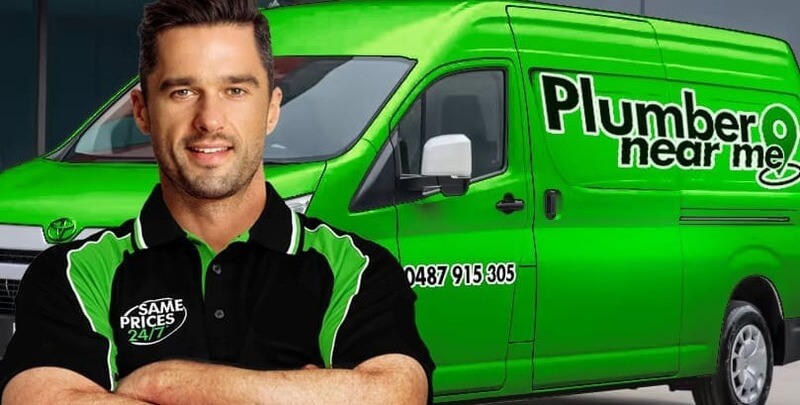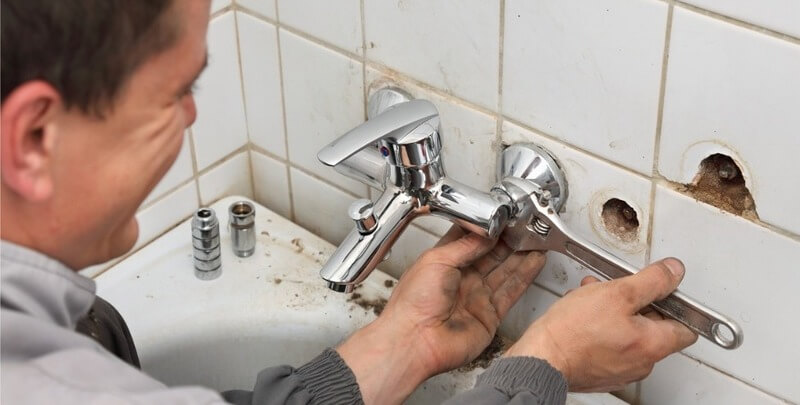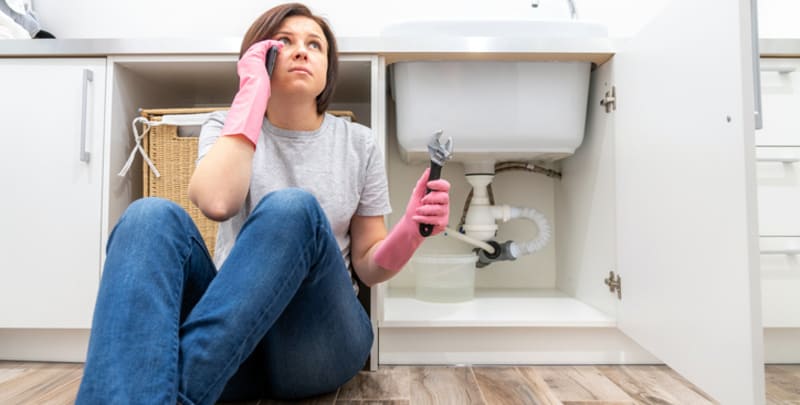
Common DIY Plumbing Mistakes
Plumbing is the unsung hero of our homes, quietly ensuring water flows seamlessly and waste is disposed of efficiently. With the popularity of DIY projects, more homeowners are attempting plumbing tasks independently.
While this can be empowering, it has its fair share of pitfalls. This blog highlights common DIY plumbing problems and mistakes and provides practical solutions for a smoother experience.
Mistake 1 − Ignoring Safety Precautions
Embarking on a plumbing project without prioritising safety is akin to walking a tightrope without a safety net. DIYers often overlook basic safety measures, putting themselves at risk of injury. To ensure a safe plumbing project, don appropriate personal protective equipment (PPE) such as gloves and safety glasses.
Familiarise yourself with the location of shut-off valves and have a first aid kit on hand. Remember, taking a few extra minutes to ensure your safety can prevent hours of regret later.
Mistake 2 − Using the Wrong Tools
Plumbing tasks such as fixing drainage and burst pipes demand precision, and using the wrong tools can turn a straightforward project into a nightmare. The significance of investing in quality tools cannot be overstated. From pipe wrenches to plungers, having the right tools for the job is essential.
Avoid common plumbing mistakes such as using adjustable wrenches incorrectly, risking damage to both tools and pipes. Create a toolkit specific to plumbing, including pipe cutters, Teflon tape, and a reliable pipe wrench. Your plumbing arsenal will determine the success of your project.
Mistake 3 − Incorrect Pipe Connections
Joining pipes might seem straightforward, but it’s a common stumbling block for DIY plumbers. Incorrect pipe connections can lead to leaks, water damage, and even mould growth on plumbing jobs. Start by selecting the right type of pipes and fittings for your project.
Use Teflon tape or joint compound on threaded connections and ensure a snug fit without over-tightening. A step-by-step guide on pipe connection is essential, including measuring, cutting, and properly securing each joint. Taking the time to master this skill will pay off in the long run.
Mistake 4 − Overlooking Leak Detection
Early leak detection is the superhero skill every DIY plumber needs. Ignoring this aspect can result in extensive water damage and costly plumbing repairs. Train your eyes and ears to recognise common signs of leaks, such as water stains, mould growth, or the sound of dripping water.
DIY methods for detecting and fixing leaks include using dye tablets in toilets, checking water meter readings, and inspecting visible pipes for moisture. Swift action at the first sign of a leak can save you from a plumbing disaster.

Mistake 5 − Inadequate Pipe Support
Proper pipe support might not be the most glamorous aspect of plumbing, but it’s crucial for a stable and leak-free system. Common errors include using improper materials for support, spacing pipes too far apart, or neglecting to secure them adequately.
To ensure adequate pipe support, use pipe hangers or straps suitable for the pipe material. Follow manufacturer guidelines for spacing and secure pipes firmly, preventing unnecessary movement. A little attention to this detail can prevent long-term issues.
Mistake 6 − Neglecting Local Building Codes
Need to pay more attention to local building codes is a recipe for disaster in DIY plumbing. Building codes exist to ensure the safety and functionality of plumbing systems. Common violations include improper venting, inadequate pipe size, and non-compliance with fixture requirements.
Researching and complying with local regulations might seem tedious, but it is a crucial step in any plumbing project. Consult local authorities or professionals to clarify specific requirements to avoid costly mistakes.
Mistake 7 − Mishandling Plumbing Fixtures
Plumbing fixtures are the finishing touches that bring functionality and aesthetics together. Mishandling them can result in leaks, poor performance, or damage. When installing fixtures, follow manufacturer instructions meticulously.
Use the correct tools and materials, such as plumber’s tape, for threaded plumbing connections only. Regular maintenance, including cleaning aerators and inspecting seals, is essential for fixture longevity. If issues arise, troubleshoot with the help of online resources or seek professional advice to avoid exacerbating the problem.
The Importance of Hiring Qualified Plumbers
Hiring professional plumbers is crucial for various reasons, as they play a key role in maintaining and ensuring the proper functioning of a home building’s plumbing system.
Here are some important reasons why hiring professional plumbers is essential:
- Expertise and training: Professional plumbers undergo extensive training to acquire the necessary skills and knowledge in plumbing. They have the latest industry techniques, tools, and technology to handle various plumbing issues effectively. Their expertise ensures that problems are diagnosed accurately and fixed efficiently.
- Quality workmanship: Professional plumbers are committed to delivering high-quality work. They adhere to industry standards and regulations, ensuring that repairs and installations are completed correctly. This helps prevent future issues and ensures the longevity of the plumbing system.
- Safety compliance: Plumbing often involves water, gas, and sewage systems. Professional plumbers are well-versed in safety protocols and regulations to prevent accidents and ensure the safety of both residents and the property. They also possess the necessary licences and insurance, providing additional protection in case of unforeseen incidents.
- Advanced equipment: Professional plumbers can access advanced tools and equipment not readily available to the average homeowner. This allows them to efficiently diagnose and address plumbing issues, leading to quicker and more effective solutions.
- Troubleshooting skills: Plumbers have the expertise to identify the root cause of plumbing problems. They don’t just address the symptoms but diagnose the underlying issues, preventing recurring problems. Their troubleshooting skills save time and money in the long run.
- Emergency services: Plumbing emergencies can happen anytime, and professional plumbers often offer 24/7 emergency services. A reliable calling professional during urgent situations can prevent further damage and minimise downtime.
- Code compliance: Professional plumbers are familiar with local building codes and regulations. They ensure that all plumbing work meets the required standards, preventing legal issues and potential complications when selling or renovating a property.
- Time efficiency: Professional plumbers are experienced and efficient in their work. They can complete tasks promptly, minimising disruptions to your daily routine and preventing extended downtime for your plumbing systems.
The importance of hiring professional plumbers must be balanced. Their expertise, training, safety compliance, and access to advanced equipment make them essential for maintaining the integrity and functionality of plumbing systems in residential settings.

Trust the Professionals
Tackling DIY plumbing projects can be rewarding if approached with caution, knowledge and the right tools. By reviewing the common mistakes discussed and emphasising the importance of safety, proper tools and adherence to local codes, you set yourself up for success.
Plumbing may seem daunting, but homeowners can achieve professional-grade results with the right education and preparation. And remember, when in doubt, feel free to seek the guidance of a professional plumber.
With the right mindset and skills, you can navigate some plumbing challenges and achieve successful DIY projects. Happy plumbing!
Please note: This information is provided for advice purposes only. Regulations differ from state to state, so please consult your local authorities or an industry professional before proceeding with any work. See our Terms & Conditions here.